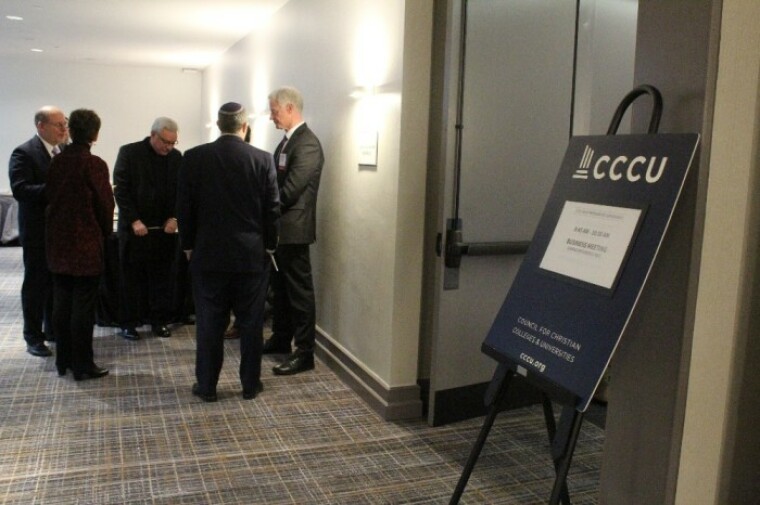Religious colleges fear higher education becoming more hostile to faith

Religious colleges are attempting to "re-write" the narrative that exists today about faith in education before societal hostility mobilizes to one day push faith-based institutions out of the "mainstream" of higher education.
Presidents from colleges representing traditions of Protestant Christianity, Islam, Catholicism, Judaism and the Church of Jesus Christ of Latter-day Saints gathered last week to discuss the challenges they face as secular society continues to grow more hostile to principles of "Abrahamic morality."
Just days after the media hysteria surrounding second lady Karen Pence's job as an art teacher at a Christian private school in Virginia that adheres to biblical doctrine, presidents from the five religious colleges participated in a discussion just a few miles down the road in Washington, D.C., about the misunderstandings people have about faith in higher education.
The discussion capped off the Council for Christian Colleges and Universities' Presidents Conference that took place at the Washington Court Hotel on Capitol Hill. CCCU is a network of over 180 Christian colleges worldwide.
"Today's discussion invites us to reimagine this narrative that [characterizes] so much of the modern period and to rewrite this story going forward, to rewrite this story that persists so much in the world of higher education," Shirley Mullen, the president of Houghton College, a Christian liberal arts school in Western New York, said during the panel.
"This standard western narrative of progress has assumed that deeply-held religious beliefs, especially when there is diversity in those beliefs, result in intolerance, conflict, violence, oppression."
Mullen, who serves as vice chair of CCCU's board of directors, contended that a "new narrative" must be crafted regarding the relationship between religion, society, higher education and human flourishing.
"One of the great misperceptions out there today, particularly within higher education, is that our institutions would be the ones that are very monolithic internally and that students come here to learn how to think like Muslims or think like Roman Catholics or whatever," Mullen said.
"In fact, what you have heard illustrated here today is that these are the institutions where it is often really tough-minded, thoughtful dialogue going on among our students," she continued. "[Those conversations] are passionate and they are deep because they are grounded in those fundamental moral and theological commitments."
As a historian, Mullen stressed that people don't realize that "science actually grew up in the context of a religious framework that assumed a universal order that the world was a creation of a rational being." She added that faith has also been the motivation for various social reform movements and the expansion of human rights in the modern period.
John Fitzgibbons, president of the Jesuit-aligned Regis University in Colorado, suggested that students at religious colleges are able to have a dialogue on their campuses about controversial topics of the day. But on many secular college campuses, people who advocate certain religious views on topics like sexuality and marriage might find themselves shut out from the conversation.
Instead of safe spaces, Fitzgibbons argued that colleges really need "sacred spaces."
"The university is the place where the consummately personal and the structural are examined together. It is an enormous mistake to excise or cutout faith from public conversation," Fitzgibbons said. "It is simply misguided. It doesn't matter what the faith articulation is. ... The point is if you don't bring the deepest parts of your being to the conversation with others that is rigorous, challenging and profoundly difficult, the deepest part of what it means to be human is not in the conversation."
Hamza Yusuf, co-founder of Zaytuna College, the first accredited Muslim college in the U.S., said that there is increasing hostility toward deeply-held religious beliefs at many secular colleges.
"Where I am up on Holy Hill [in Berkely, California], the most intolerant college is up there [University of California, Berkeley] and is the one that claims to be the most tolerant," Yusuf said. "Because if you are not completely on board with all of their beliefs, then you are unacceptable, you are a bigot. I am just saying ... that I don't want to see any persecution but I also feel that we should not be persecuted for adhering to Abrahamic morality. It is just not really fair."
Read more from "Religious colleges fear higher education becoming more hostile to faith" on The Christian Post.